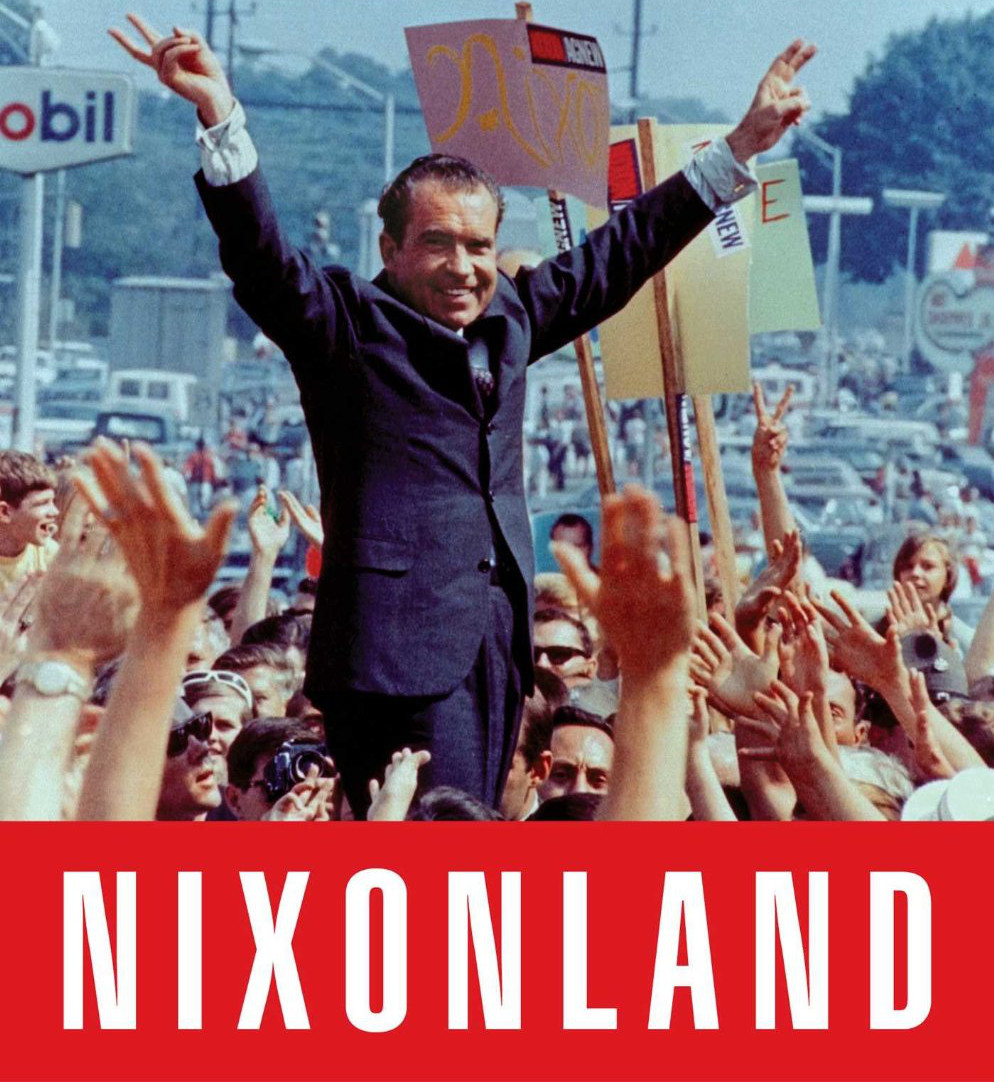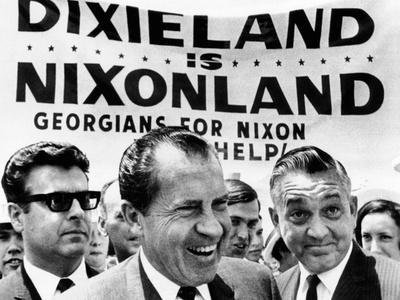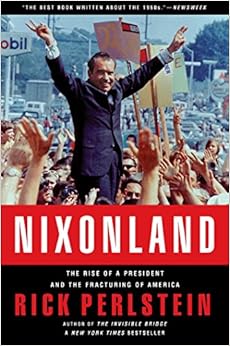

His tone may have been slightly less than neutral and he may have mispronounced things, but this material had the potential to be mind-numbingly dry in audio format, and I enjoyed the injections of personality and drama. Like the Iliad, it was epic in scope and stopped just shy of where you thought it was going.

It revealed the origins of the current bugaboos of the Republican party: Pat Buchanan, Karl Rove, Chuck Grassley, to name a few. It gave context to that swift-boat nonsense from the Kerry presidential campaign that I didn't understand when it happened. It explained quite a lot about why my uncle, a veteran, is still angry about Vietnam. This book gave depth and character to not only Nixon, but all the various agitators of the 60s and 70s. These 3 facts I gleaned from reading All The President's Men in high school.

He resigned in the middle of the mother of all political scandals. Going into this book, I knew 3 things about Richard Nixon. Nixon: There was more to it than Watergate Overall, the book itself rates a "5" - but this version loses a notch because of the narrator's failure to "fact check" pronunciations easily accessible in the public record - which are the coin of the realm in a spoken word edition. For those who lived through the era, the constant mispronunciations were both annoying and distracting. There are reams of audio news reports from that era against which contemporary pronunciations of those names can be checked - it's not as if this book were about life in the 1850s, after all.

But like several other reviewers, I found this *edition* wanting because of the narrator's careless pronunciation - I counted at least a dozen relatively well-known folks (including Dean Acheson, Nguyen Cao Ky, and Tom Huston, infamous today for the "Huston Plan" that presaged Watergate) whose names he botched, along many place-names of Vietnam (e.g., Ton Son Nhut Air Base). But this book tells the story of this talented yet deeply flawed man against the vast canvas of his era, showing how easily history could have taken a different path. Richard Nixon is the main character, of course, in all his bottomless pathology - smart conniving petty crafty conflicted envious. And that minute detail is what, ultimately, explains why many folks who supported Kennedy in 1960 and Johnson in 1964 had come, by 1968 and, especially 1972, to vote for Nixon in droves. Charles Percy) are a kind of Rorschach of the politics in the 1960s. Though one can quibble about some of Perlstein's choices (relatively little space devoted to the 1960 election compared to, e.g., Nixon's role in the 1966 Republican midterm-election resurgence), the details about seemingly minor politics and politicians, many now largely historical footnotes (Calif.


 0 kommentar(er)
0 kommentar(er)
